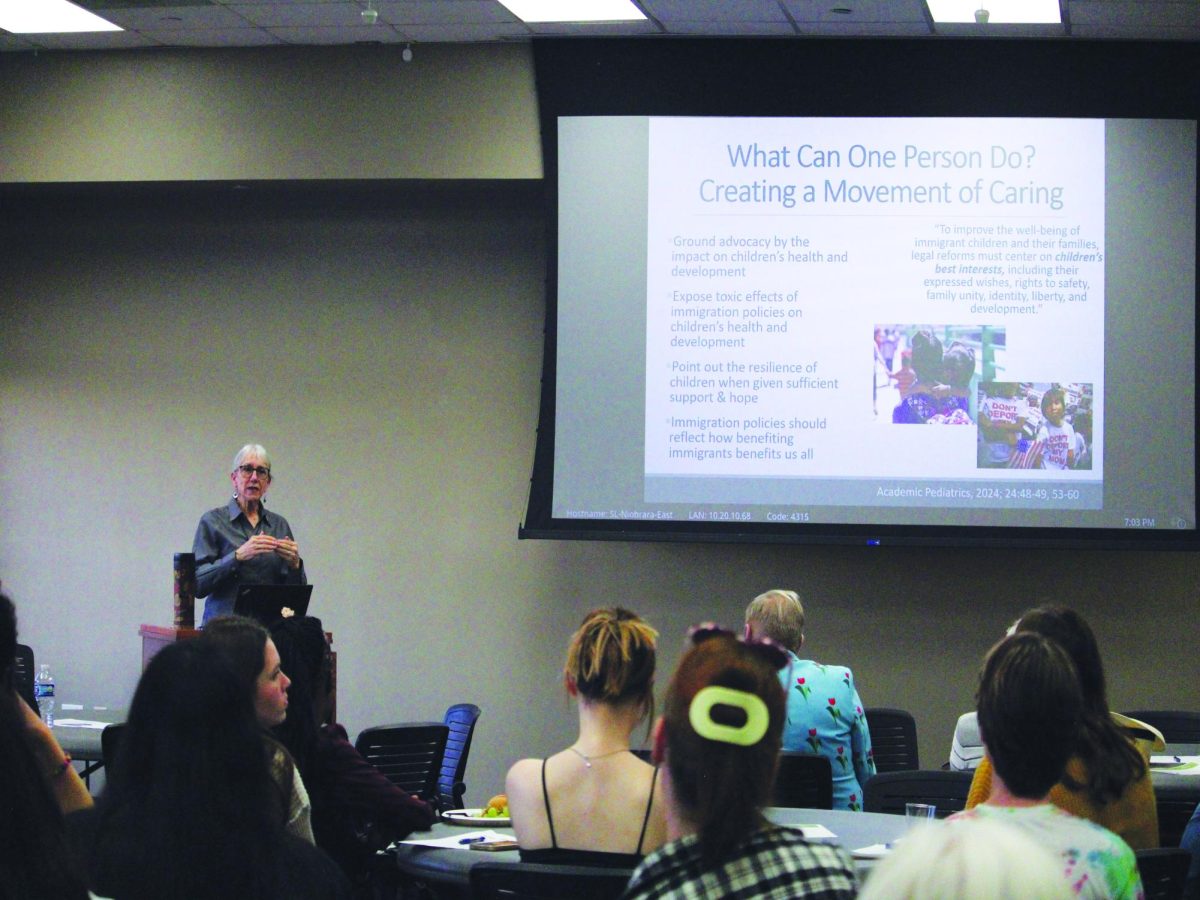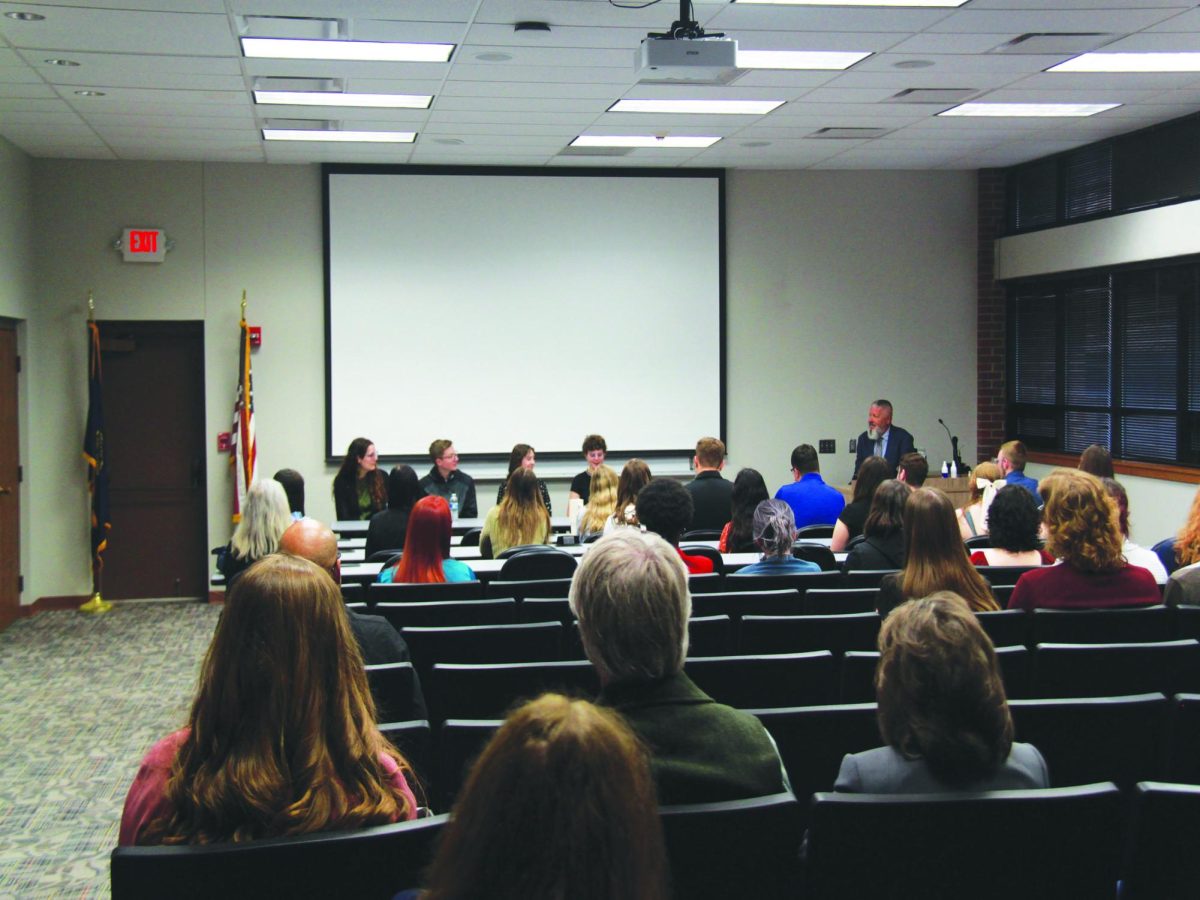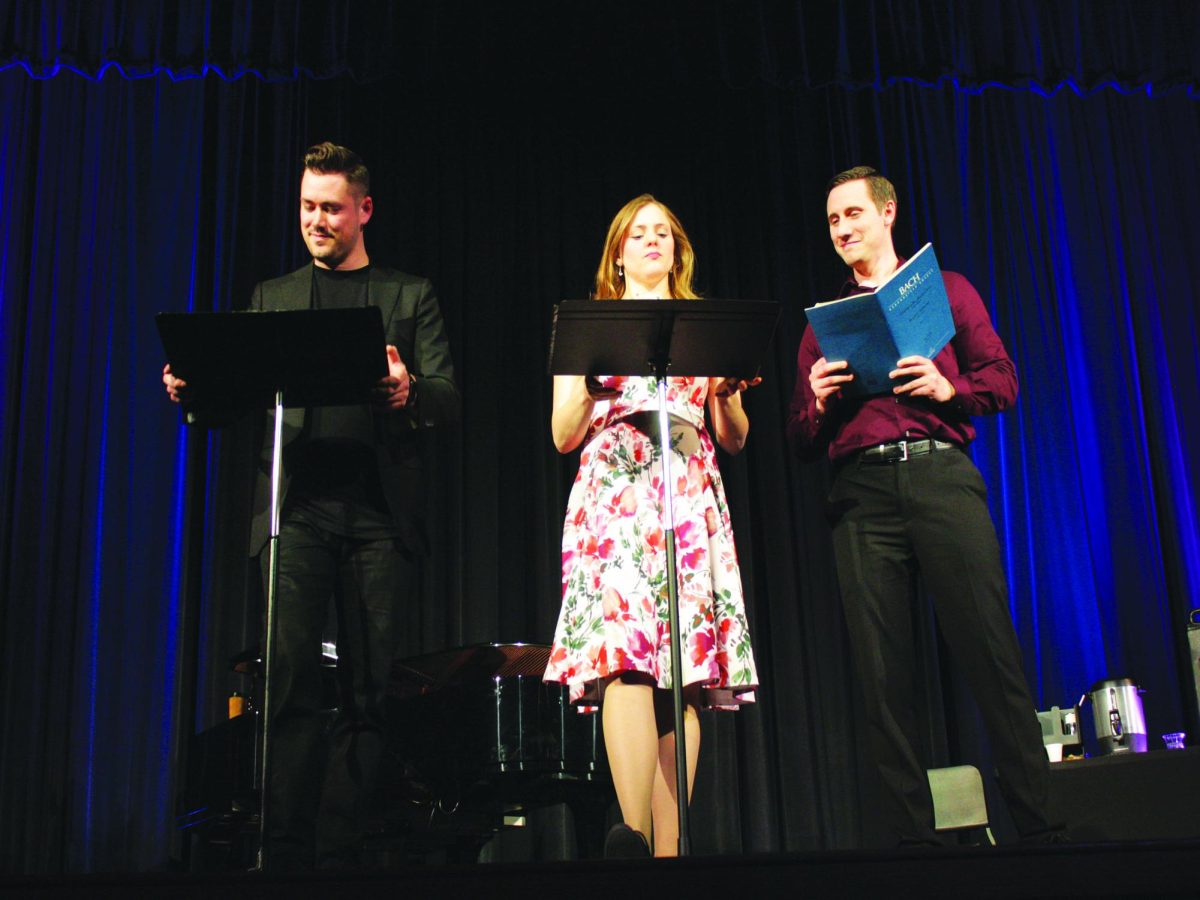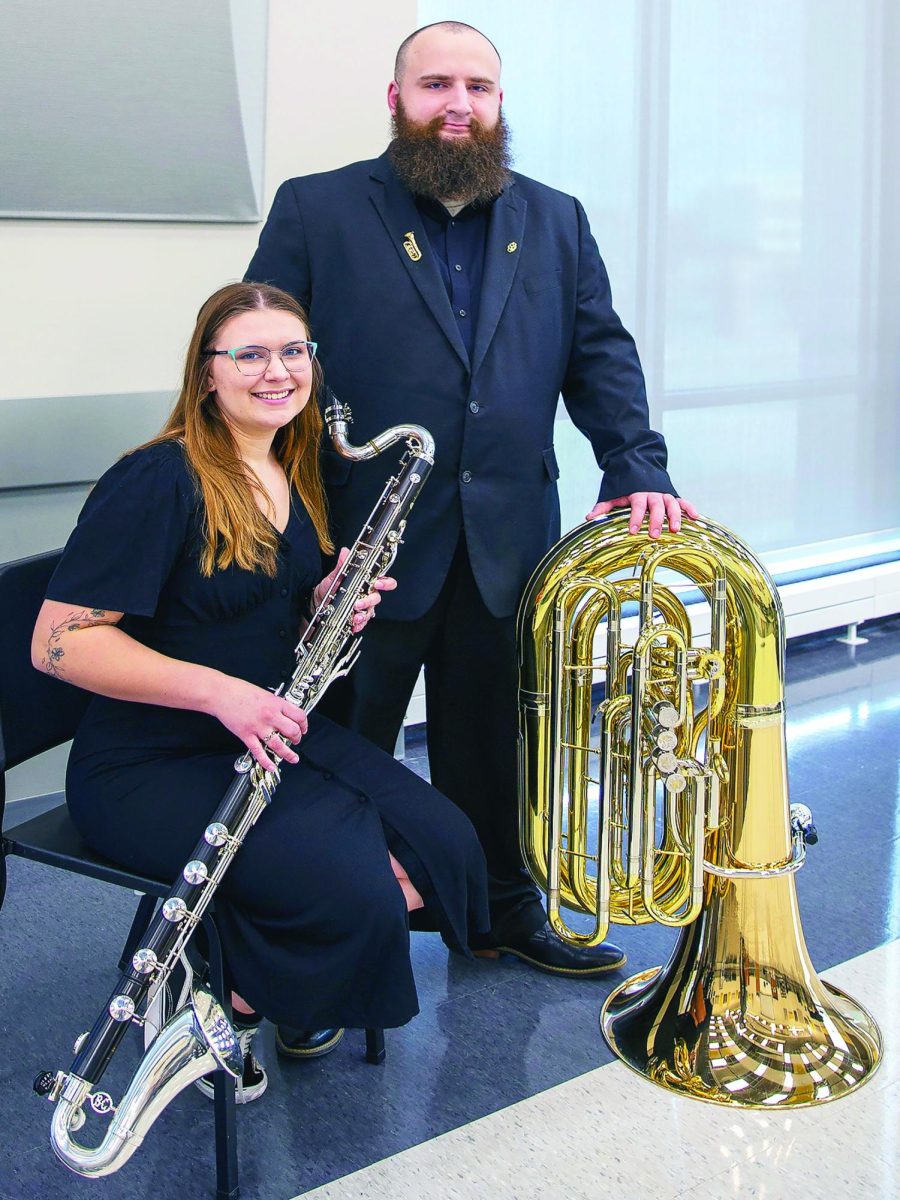Bass Clarinet takes center stage
October 5, 2016
Professor Karl Kolbeck performed a sonata in B-flat for bass clarinet and piano in Humanities room 319 last Wednesday for the monthly colloqiuium. The piece, written by Owen Elton, is one of the few in existence that approaches the bass clarinet as a solo instrument.
The colloquium has performances once a month on the fourth Wednesday of the month – without performances in December or May.
“Before coming to Wayne State College, I did a lot of bass clarinet orchestral playing, but I never played a solo piece for a bass clarinet,” Kolbeck said. “For the last several years I’ve been looking into original works for bass clarinets. I performed a sonata I discovered this summer.”
The bass clarinet was first invented in 1770, but was not officially introduced into orchestral music until 1850. Throughout the 19th and 20th centuries, the instrument was mostly used as an ensemble piece. It wasn’t until 1950 that composers and artists started to approach the bass clarinet as a solo instrument, when more works were created or transcribed, usually from cello pieces, to create more variety in the instrument’s repertoire.
“There are a lot of transcriptions that were written for other instruments like the cello that can be performed on the bass clarinet,” Kolbeck said. “But there is not many that were written specifically for this beautiful instrument.”
The piece Kolbeck performed was a modern classical piece written in 2010 by English composer Elton, with three movements and a 16-minute duration. Each movement was inspired by the works of three 20th century artists, Salvador Dali, M.C. Escher and Piet Mondrian.
Kolbeck was accompanied by Philip Pfaltzgraff, the staff accompanist who also performs with the choir, staff performers and student singers.
“The job as a collaborator is to remember who is the soloist but to know my part is important as well,” Pfaltzgraff said. “I’ve done this kind of accompaniment since 2001. There is a lot of repertoire with a ton of variety; it always has its challenges. Our job is to make it sound and seem as simple and enjoyable as possible for the audience.”









